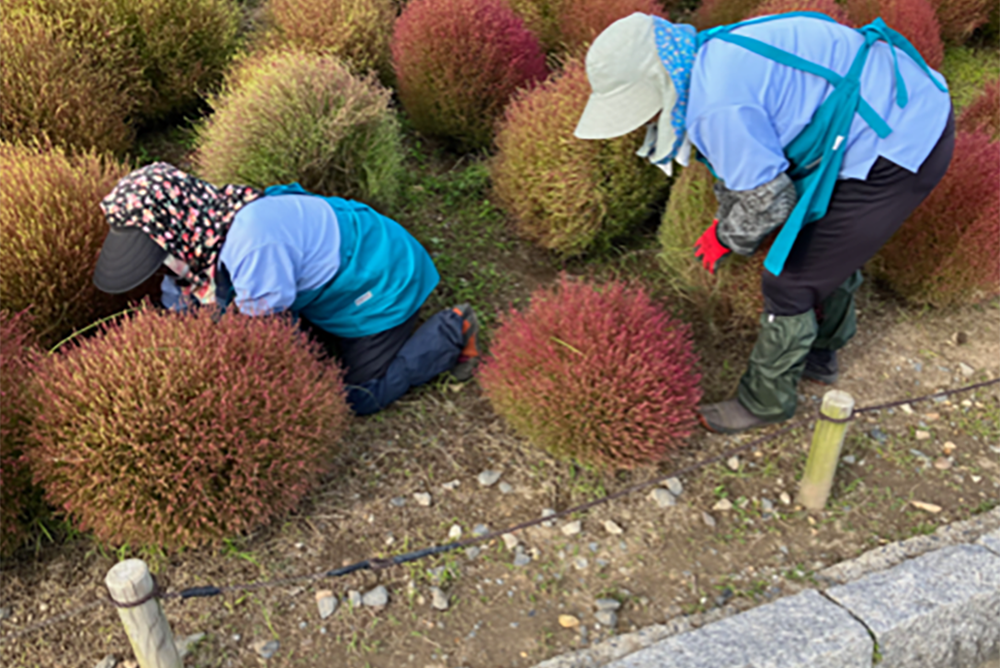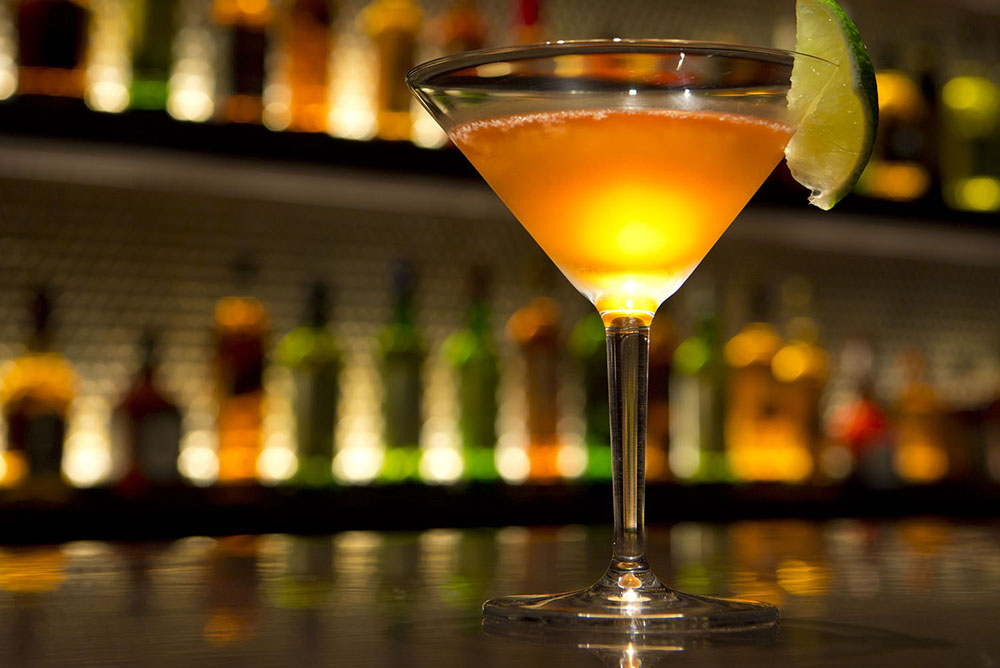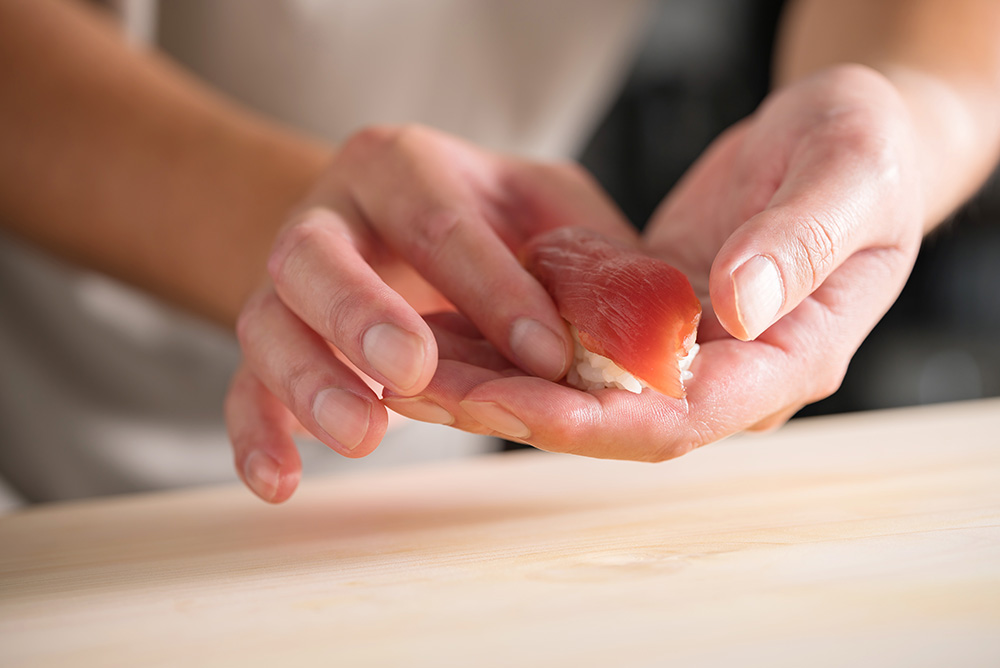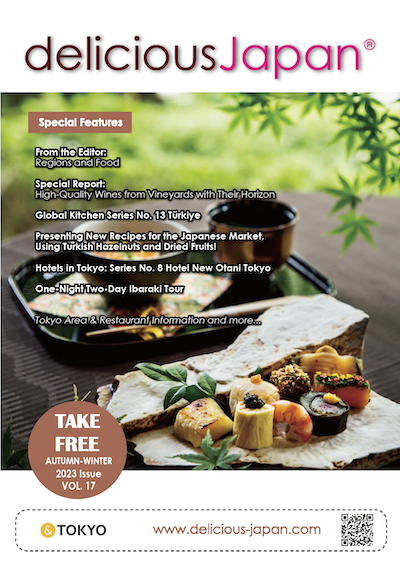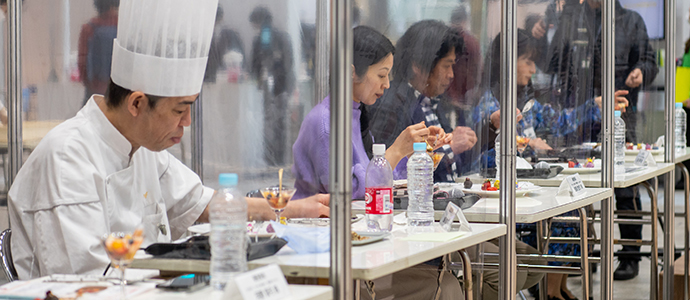
The Fourth “Natural Food: Audition to Discover New Recipes”
The food needs on the part of Japanese consumers are diversifying into areas such as organic ingredients, and gluten-free and vegan items. This trend is expected to accelerate, and demand for ingredient development and recipe ideas is rising rapidly, as the food service industry is under pressure to meet these needs.
The event organizer says “The aim of this unique event program is to boost the natural foods market and raise the quality of natural food products. This is an unprecedented new initiative to use natural food recipes to connect chefs with businesses”. Every year entries are requested in the two fields of
main dishes and sweets, and there are the following six screening criteria: [1] Originality, [2] How natural ingredients are used, [3] Finished appearance (photogenic appeal), [4] Nutritional balance, [5] Unit price and costs, and [6] Balance of flavors.
The organizer also says “We are looking for this audition to lead to commercial product development and media coverage of superior recipes, so the screening judges are top players in retailing, dining, and the media, and are familiar with natural foods. And at the same time we want to encourage buyers and others to taste the recipes, and to generate opportunities for trade negotiations”.
Among the judges, Jury President Toshiyuki Kato commented that “Natural food still doesn’t have a culture or a form as a cuisine, in the way that French or Italian food have. It is necessary to establish natural cuisine as a new genre, including its definition, and in that regard, this event has extraordinary value going forward. It would be wonderful if it prompted more people to think about, and reconsider, health, the environment, and their lifestyles.”
Main Dishes Division and Sweets Division
The seven finalists who passed the preliminary review were divided into two divisions, for main dishes and sweets. The four finalists chosen for the main dish category and three for the sweets category worked on cooking demonstrations at the same time.
In the Main Dishes Division, “Konjac and Soy Meat Salad” by executive chef Atsushi Iijima won the Grand Prix, and “Soupless Tan Tan Noodle with Miso Soy Meat ”, by Miho Maeda won the Special Recognition Award. In the Sweets Division, “Raw Beauty Bliss Ball” by Organic Cafe & Salon Aguricafe amateru, Akio Tanaka, won the Grand Prix, and “Konjac Macedonia”, by vegan food creator Mai Tsunoda won the Special Recognition Award.
This unprecedented natural food event is certain to gather much more attention next year in line with the return of foreign visitors to Japan toward the end of Covid-19. It is hoped that it will continue to serve to strengthen and stimulate Japan’s natural food industry, bringing more variety in natural foods to Japan’s dining tables.
GRANDPRIX
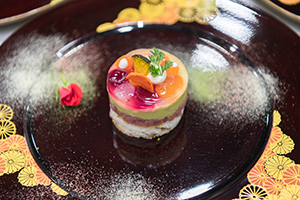
Konjac and Soy Meat Salad
Atsushi Iijima
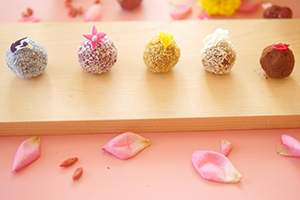
Raw Beauty Bliss Ball
Akio Tanaka
SPECIAL RECOGNITION AWARD
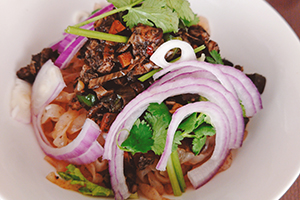
Soupless Tan Tan Noodle
with Miso Soy Meat
Miho Maeda
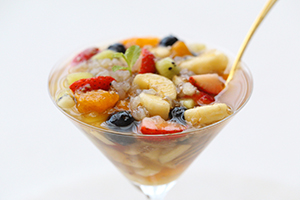
Konjac Macedonia
Mai Tsunoda
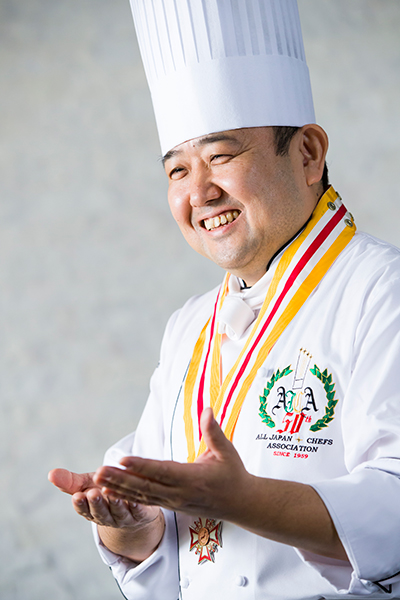
Atsushi Iijima, Executive Chef, HMI Hotel Group
What was the theme of your recipe?
The Covid pandemic is putting the tourist and restaurant industries in a tough spot. I was thinking of a recipe that could be provided and sold as a delivery or takeout meal. I also considered the operational aspects and tried to make something simple for anyone to make.
What was the biggest attraction of your prize-winning recipe?
"There's value and important aspects that can't be seen in the recipe". It's a recipe that values the ingredients and fully uses all materials, even the water. It uses the minimum amount of water to boil vegetable and make the water into bouillon. Vegetable scraps are used in dressing, mayonnaise, and sauce.
Please tell us a bit more about yourself.
I've been working in this industry for over 30 years. French cuisine is my starting point, but at times, I created luxurious dishes and cooked just for myself. Now I cook for people for their smiles and happiness. From now on, my role as executive chef is to develop the business by getting involved in management, human development, and environment building.
What do you strive for as you cook?
I think about how to get people to eat and be happy, and try to create recipes that let food make people smile. It's very important to communicate Japan's culture and traditions through cuisines. It's also important for me to know foreign culinary cultures and dietary habits, and to create recipes through communication with people.
What is your mission as a chef?
My greatest mission is to develop people who will carry our work on to the next generation. This is a career that has high turnover and isn't kind to women. The industry must improve the work and the workplace environment, and become an industry that coming generations will want to work in. It should be a place where people from other countries can work easily and thrive. I'm always thinking about what I can do to those ends.
If I could do things like that overseas as well, including volunteering or just helping out, that would be my happiest culinary life. There are so many people around the world who cook. I want to do the things that I can only do. I'm delighted if I can earn three stars in people's hearts.
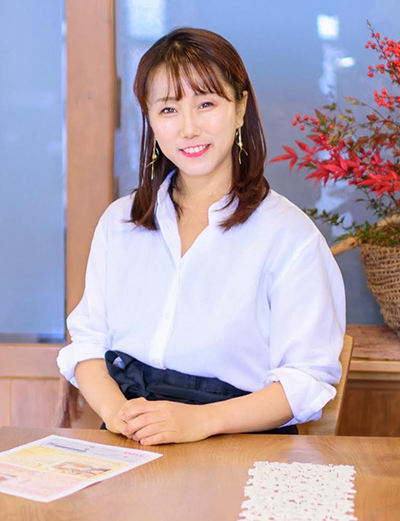
Akio Tanaka, Organic Cafe & Salon Aguricafe amateru
What were you focusing on the most about your entry?
I was thinking of a recipe that would improve the intestinal environment and boost immune function when people eat it. I used Chinese medicinal ingredients, such as jujube and goji berry, which help to regulate liver function, dietary fiber from dates and figs, and Organic Roasted Brown Rice Powder, which is the sponsor's product, to enhance the detox effect. I made a "bliss ball" with the five colors of the five elements in Chinese cosmology, and added ingredients with effects for the liver, heart, spleen, lungs, and kidneys, to produce a recipe that's also fun to look at.
What is the biggest attraction of your recipe?
Raw sweets and bliss balls commonly use nuts, but there are lots of people who can't eat nuts because of allergies, or who just don't like nuts much. That's why I thought of a nut-free recipe this time. But the greatest appeal is that as well as being nut-free, the recipe is also free of wheat, eggs, dairy products, sugars, lecithin, and gluten, with the sweetness coming from just the Chinese medicinal ingredients and the dates.
Please tell us a little about yourself.
I sell vegan and gluten-free cakes, I have an online shop, I suggest recipes, and I'm a writer. I was born with severe food allergies and eczema, and that experience prompts me to oer recipes for dishes and confectionery that everyone can enjoy eating around the same table without worrying, even if they have allergies, religious reasons, or other issues.
What do you recommend as a food experience for foreigners in Japan?
A wide variety of culinary cultures come together in Japan, but I particularly want foreigners to experience the delicious flavor of proper dashi stock, and Japan's real traditional cuisine. Dashi stock, fermented foods, pickles, and the like build the intestinal environment and the body's constitution.
Is there a particular Japanese ingredient that you want people to try, and to learn about?
I want them to try vegan Japanese recipes, which don't use animal ingredients. Fermented foods like pickles, sake lees, and malted rice have rich and savory flavors, contain abundant lactobacillus, keep well, and have high nutritional value. They are Japan's superfoods.

